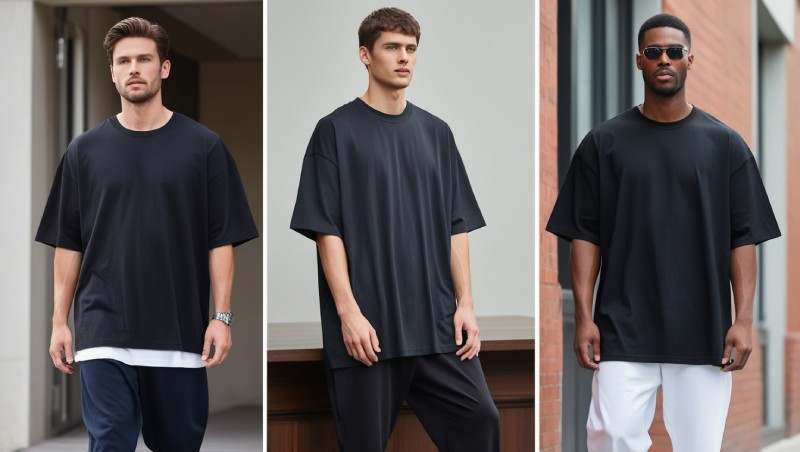Introduction
Digital marketing has come a long way from the days of simple banner ads and email campaigns. The integration of cutting-edge technology has redefined how brands interact with consumers, creating more personalized, engaging, and impactful experiences.
Why does this matter? Because consumer expectations are higher than ever. To capture attention and foster loyalty, brands must stay ahead of the curve, adopting strategies that resonate with modern audiences. Here are the five biggest trends shaping the future of digital marketing in 2025.
Artificial Intelligence (AI) Revolutionizing Marketing
Artificial intelligence has already made waves in the marketing world, and its influence is only set to grow in 2025. AI-powered tools allow marketers to analyze customer behavior, predict future trends, and deliver hyper-personalized content at scale.
AI-Driven Tools for Personalized Customer Experiences
AI enables brands to create tailored experiences for individual users by analyzing their preferences, purchase history, and browsing patterns. From personalized email campaigns to customized product recommendations, the potential is limitless.
Chatbots and Predictive Analytics
Chatbots are now more conversational and intuitive than ever. By 2025, they’ll handle even more complex customer interactions, providing instant solutions and boosting customer satisfaction. Predictive analytics, on the other hand, helps businesses anticipate customer needs, ensuring timely and relevant engagement.
Examples of AI Marketing Success
Brands like Amazon and Netflix have set the gold standard for AI-driven personalization. Expect more companies to follow suit, leveraging AI to deepen customer relationships and drive conversions.
The Rise of Voice Search and Conversational Marketing
Voice search is no longer a novelty; it’s becoming a primary way consumers find information. By 2025, optimizing for voice search will be as important as traditional SEO strategies.
Voice Search Optimization
With devices like Alexa, Siri, and Google Assistant gaining popularity, marketers must rethink their SEO tactics. Voice search queries are often longer and more conversational, requiring a shift towards natural language keywords and question-based content.
Conversational Marketing Tools
Tools like chatbots, live messaging, and AI-driven customer support systems make conversational marketing a key trend. These tools enable real-time engagement, fostering stronger connections between brands and their audiences.
Impact on SEO Strategies
Voice search optimization will prioritize local SEO, featured snippets, and mobile-friendly content. Businesses that fail to adapt risk losing visibility in this voice-first world.
Augmented Reality (AR) and Virtual Reality (VR) Experiences
Immersive technologies like AR and VR are transforming how brands interact with consumers, especially in industries like retail, real estate, and entertainment.
AR Shopping Features
E-commerce platforms are increasingly adopting AR to create interactive shopping experiences. Imagine trying on clothes virtually or visualizing furniture in your home before making a purchase AR makes it possible.
VR for Event Marketing
VR takes event marketing to the next level by creating fully immersive experiences. Virtual product launches, interactive trade shows, and 360-degree brand stories are just the beginning of what VR can achieve.
Building Emotional Connections
These technologies allow brands to connect with consumers on a deeper emotional level, making experiences more memorable and impactful.
Hyper-Personalization Through Big Data
Big data is the driving force behind the next level of personalization in marketing. By 2025, brands will use data to deliver content and experiences so tailored it feels as if they were created for each individual consumer.
Crafting Tailored Customer Journeys
Hyper-personalization goes beyond addressing customers by their first names. It involves creating entire marketing campaigns based on individual behaviors, preferences, and interactions.
Ethical Data Use
As personalization grows, so do privacy concerns. Brands must prioritize transparency and ethical data use to maintain consumer trust. Compliance with regulations like GDPR and CCPA will be critical.
Tools for Hyper-Personalization
Platforms like HubSpot, Salesforce, and Adobe Experience Cloud are leading the charge in helping businesses analyze data and implement hyper-personalized marketing strategies.
Sustainability-Focused Marketing
Consumers are increasingly prioritizing sustainability, and brands must follow suit to remain relevant.
H3: Aligning with Consumer Priorities In 2025, sustainability won’t just be a trend it will be an expectation. Brands that embrace eco-friendly practices and communicate their efforts authentically will win customer loyalty.
Transparent Marketing Strategies
Consumers value honesty. Highlighting sustainable practices, from sourcing materials to packaging, helps build trust and align with environmentally conscious buyers.
Examples of Eco-Friendly Marketing
Brands like Patagonia and Tesla have successfully made sustainability a core part of their marketing strategies. Others will need to follow their lead to stay competitive.
How Businesses Can Adapt to These Trends
Adapting to the digital marketing trends of 2025 requires both strategy and the right tools. Partnering with experts in the field can help businesses stay ahead. For instance, leveraging professional NJ digital marketing services ensures that your strategies are aligned with the latest innovations. These services can guide businesses in implementing AI tools, optimizing for voice search, and creating personalized campaigns that resonate with modern audiences.
Whether you’re a small business or an established brand, working with digital marketing professionals ensures you remain competitive in an ever-evolving landscape. By focusing on data-driven decisions and innovative approaches, you can effectively engage your audience and achieve long-term success.Communicate sustainability efforts authentically.
Conclusion
The digital marketing landscape in 2025 will be defined by innovation, personalization, and a commitment to sustainability. By embracing these trends, businesses can not only stay competitive but also foster deeper connections with their audiences. The time to start preparing is now don’t wait until it’s too late to adapt.
Also Read
- ► Enjoy the Best New Year Dinner at Charsi Karahi, Open All Day!
- ► How Bismarck Estate Planning Lawyers Help Secure Your Family’s Future
- ► Pros and Cons of Artificial Grass for Dogs
- ► The Benefits of Professional Computer Repair Services in Fort Lauderdale
- ► Enhancing Mapping Accuracy with UAV Aerial Surveying Technology
- ► Explore the Pacific in Luxury Cruises Departing from Qingdao
- ► Omnipod DASH Pods Advanced Diabetes Management
- ► Common Plumbing Problems in Phoenix Homes (And How Our Team Fixes Them)
- ► How to Choose the Right Web Design Package for Your Business
- ► Complete Guide to Lahore Smart City Payment Plan 2025
- ► Everything You Need to Know About Deep Tissue Massage: Benefits, Techniques, and What to Expect
- ► Web Design El Paso: Building Strong Online Connections
- ► Jeddah to Makkah Taxi Fare Insights for Travelers
- ► Elevate Your Streetwear with the Spider Hoodie
- ► Essentials Clothing





